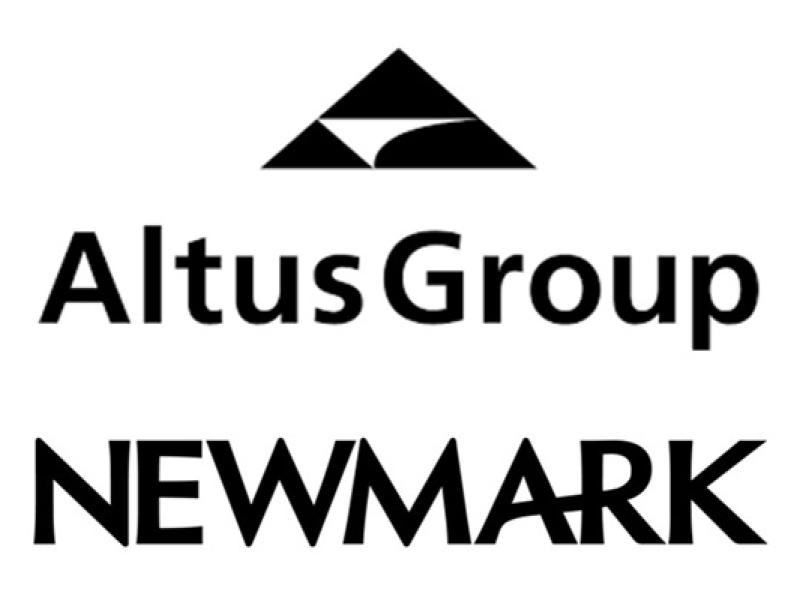
The former Montreal Gazette facility is now one of eStruxture’s Canadian data centre assets. (Courtesy CBRE)
Demand from cloud service providers and large technology companies was responsible for Toronto logging the second-highest data centre leasing activity in North America in 2020, according to CBRE’s latest North American data centre trends report.
The Ontario capital had 38.1 megawatts (MW) of data centre absorption, while Montreal ranked ninth in North America with 11 MW of net absorption.
Toronto and Montreal are far and away the leaders for data centre activity in Canada, and they respectively have 30 MW and 57 MW of space under development. The country has 279 data centres and ranks fifth globally for density.
“The Canadian story is being driven by the expansion of the cloud footprint,” CBRE’s Montreal-based senior vice-president David Cervantes, who co-leads the company’s Canadian data centre business, told RENX.
Large tech companies seek bigger spaces
“That specifically is being driven by the biggest cloud providers in the world, which are making sure that they’re as active in Canada as they should be.”
After beginning with smaller footprints in multi-tenant data centres, Cervantes said Microsoft, Amazon, Google, Oracle and IBM Cloud are all pursuing larger positions in Montreal and Toronto.
“We’re seeing really broad-based growth and a preference towards single-tenant data centres. That’s a bit of a game-changer because it forces the end-user, big cloud players to do bigger deals because they’re generally becoming the only occupant of the building.
“And from an investment perspective, it’s creating this rabid appetite to be the partner — either from a development perspective or from a data centre landlord perspective — because what’s better than having a 150,000-square-foot data centre with a single name on the lease, and that name being one of the five biggest tech companies in the world.
“The big boys are taking space in a much bigger way than they have in the past and the data centre providers, developers and investors are all clamouring to be part of this next phase.”
Major data centre providers in Canada
The most successful North American data centre providers are Vantage Data Centers and Compass Datacenters, according to Cervantes.
Urbacon Data Centre Solutions and eStruxture are Canadian companies that have made inroads in providing data centre availability.
eStruxture, the largest Canadian-owned cloud and carrier-neutral data centre provider, recently signed an agreement to acquire all eight Canadian data centres from Aptum, a global hybrid multi-cloud-managed service provider, along with all of the customers and employees associated with its colocation business.

David Cervantes, senior vice-president, advisory and transaction at CBRE in Montreal and a member of CBRE’s Data Centre Solutions Group. (Courtesy CBRE)
U.S.-based Equinix and Digital Realty are the two biggest data centre real estate investment trusts, and they both have a Canadian presence.
Equinix bought 13 data centres from BCE Inc. in October 2020 for $1.04 billion and now has 15 locations in Toronto, Calgary, Kamloops, Montreal, Ottawa, Saint John, Vancouver and Winnipeg.
Cervantes said it’s continuing to acquire.
Digital Realty has had success with a 46-MW data centre opened in 2018 in the former Toronto Star printing plant. It also sold 10 data centres to Mapletree for approximately $700 million early in 2020.
“It’s a great time to monetize if you know what you’re doing,” said Cervantes. “You are seeing a big entry of capital, which is not necessarily data centre-experienced, gobbling up these assets.”
There are no Canadian data centre REITs and Cervantes is unsure if a Canadian group can roll out a sufficiently large acquisition strategy to dedicate itself to the sector.
The Toronto data centre market
Toronto is home to a large number of corporate headquarters and large employers and these companies want their data centres located locally.
Toronto has 157.3 MW of total inventory and a 10.4 per cent data centre vacancy rate. Due to complications from COVID-19 and disrupted construction timelines, there was a delay in finalizing approximately 24 MW of solutions in the city last year.
Digital Realty has committed to developing retail solutions within its portfolio with a 1 MW pod in Vaughan and new solutions for a downtown location. It’s also completing six MW of speculative development at 1 Century Place in Vaughan.
European and Korean entries to the Toronto market are expected to be announced this year.
The Montreal data centre market
Montreal is a favourite data centre market because of its relatively low operational and power costs, as well as an appropriate workforce.
Montreal has 93.5 MW of total inventory and there’s continued data centre absorption from gaming and visual effects rendering clients, which have growing footprints. The city is starting to see pre-leased development deals after being primarily a speculative construction market to date.
Montreal’s 25.1 per cent data centre vacancy rate is due to the large amount of space that’s been developed, and most of the available space is located in multi-tenant facilities.
Vantage’s 2020 acquisition of Hypertec’s hyperscale data centre business increased its total footprint in Quebec to 81 MW of information technology capacity across three campuses. The purchase includes expansion capacity of 24 MWs, which Vantage plans to start building immediately.
Despite the success of data centres in Canada’s two largest markets, asking rents went down in both cities amid all of the absorption last year.
Cervantes said large cloud service providers and tech companies, which had been filling multi-tenant data centres, have been moving to new purpose-built, single-tenant buildings. This left the multi-tenant centre operators seeking new users to fill their now-vacant capacity.
Other Canadian data centre markets
Vancouver and Calgary are next in line to try to join Toronto and Montreal as key Canadian markets for data centres, according to Cervantes.
There’s demand for more data centres in Vancouver, but the industrial real estate market is so tight it’s difficult to find new land to build them on or existing facilities where it makes economic sense to do retrofits.
“We’ll find a way to get larger data centres into Vancouver somehow, and we’re going to see the cloud deploy in Calgary sooner than later,” said Cervantes. “It’s just a matter of time.”











